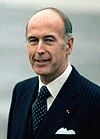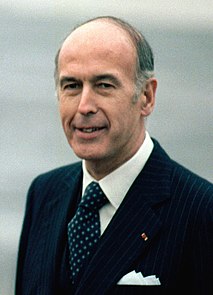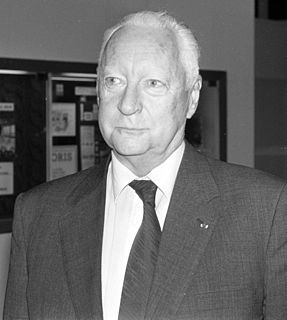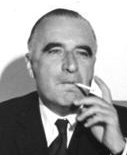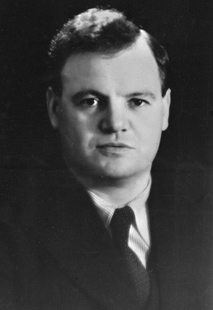| ||||||||||||||||||||||||||||||||||||||||||||||||||||||||||||||||||||||||||||||||||||||||||||||||||||||||||||
All 491 seats to the French National Assembly 246 seats were needed for a majority | ||||||||||||||||||||||||||||||||||||||||||||||||||||||||||||||||||||||||||||||||||||||||||||||||||||||||||||
| ||||||||||||||||||||||||||||||||||||||||||||||||||||||||||||||||||||||||||||||||||||||||||||||||||||||||||||
| ||||||||||||||||||||||||||||||||||||||||||||||||||||||||||||||||||||||||||||||||||||||||||||||||||||||||||||
| This article is part of a series on the |
| Politics of France |
|---|
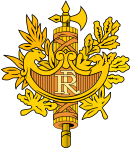 |
Related topics |
| France portal |
French legislative elections took place on 18 November and 25 November 1962 to elect the second National Assembly of the Fifth Republic.

The Fifth Republic, France's current republican system of government, was established by Charles de Gaulle under the Constitution of the Fifth Republic on 4 October 1958. The Fifth Republic emerged from the collapse of the Fourth Republic, replacing the former parliamentary republic with a semi-presidential, or dual-executive, system that split powers between a Prime Minister as head of government and a President as head of state. De Gaulle, who was the first French President elected under the Fifth Republic in December 1958, believed in a strong head of state, which he described as embodying l'esprit de la nation.
Contents
Since 1959 and the change of Algerian policy (Charles de Gaulle decided in favour of the "self-government" and "Algerian Algeria"), France had faced bomb attacks by the Secret Armed Organization ( Organisation armée secrète or OAS) which opposed the independence of Algeria, negotiated by the FLN with the March 1962 Evian agreements and approved by referendum by the French people. This policy was disapproved by some members of the "Presidential Majority".

Charles André Joseph Marie de Gaulle was a French army officer and statesman who led the French Resistance against Nazi Germany in World War II and chaired the Provisional Government of the French Republic from 1944 to 1946 in order to establish democracy in France. In 1958, he came out of retirement when appointed President of the Council of Ministers by President René Coty. He was asked to rewrite the Constitution of France and founded the Fifth Republic after approval by referendum. He was elected President of France later that year, a position he was reelected to in 1965 and held until his resignation in 1969. He was the dominant figure of France during the Cold War era, and his memory continues to influence French politics.

The Organisation Armée Secrète or OAS was a short-lived right-wing French dissident paramilitary organization during the Algerian War (1954–62). The OAS carried out terrorist attacks, including bombings and assassinations, in an attempt to prevent Algeria's independence from French colonial rule. Its motto was L’Algérie est française et le restera.
Simultaneously, when Georges Pompidou replaced Michel Debré as Prime minister, the center-right parties (MRP and CNIP) left the majority due to de Gaulle's eurosceptic declaration. Like the Left, they denounced the presidentialization of the regime.
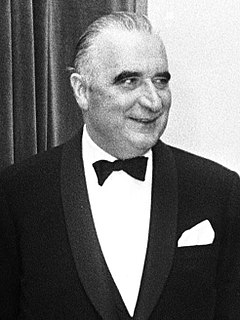
Georges Jean Raymond Pompidou was Prime Minister of France from 1962 to 1968—the longest tenure in the position's history—and later President of the French Republic from 1969 until his death in 1974. He had long been a top aide to president Charles de Gaulle. As president, he was a moderate conservative who repaired France's relationship with the United States and maintained positive relations with the newly independent former colonies in Africa.

Michel Jean-Pierre Debré was the first Prime Minister of the French Fifth Republic. He is considered the "father" of the current Constitution of France. He served under President Charles de Gaulle from 1959 to 1962. In terms of political personality, he was intense and immovable, with a tendency to rhetorical extremism.

The Popular Republican Movement was a Christian democratic political party in France during the Fourth Republic. Its base was the Catholic vote and its leaders included Georges Bidault, Robert Schuman, Paul Coste-Floret, Pierre-Henri Teitgen and Pierre Pflimlin. It played a major role in forming governing coalitions, in emphasizing compromise and the middle ground, and in protecting against a return to extremism and political violence. It played an even more central role in foreign policy, having charge of the Foreign Office for ten years and launching plans for the creation of the European Coal and Steel Community. which grew into the European Union. Its voter base gradually dwindled in the 1950s and it had little power by 1954.
On 22 August de Gaulle escaped from an assassination attempt by the OAS in Le Petit-Clamart. He subsequently announced a controversial referendum in which he proposed the election of the president of the French Republic under universal suffrage. The presidential majority composed of the UNR and the Independent Republicans (RI) (which came from a CNIP split) campaigned for a "yes", while all the other parties formed a "coalition of no" and brought down Pompidou's cabinet by a vote of no confidence (motion de censure). [1]
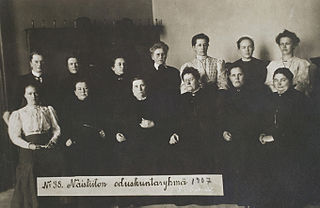
The concept of universal suffrage, also known as general suffrage or common suffrage, consists of the right to vote of all adult citizens, regardless of property ownership, income, race, or ethnicity, subject only to minor exceptions. In its original 19th-century usage by political reformers, universal suffrage was understood to mean only universal manhood suffrage; the vote was extended to women later, during the women's suffrage movement.
The Independent Republicans were a liberal-conservative political group in France founded in 1962, which became a political party in 1966 known as the National Federation of the Independent Republicans. Its leader was Valéry Giscard d'Estaing.
However, de Gaulle finally won the referendum and dissolved the National Assembly. During the legislative campaign, all the parties, except the UNR and the RI, criticized the "personal power" which they believed distorted France's Republican institutions. Indeed, in the French political culture and in their mind, Republicanism was inseparable from parliamentary democracy and the reinforcement of the presidential powers was associated with Bonapartism. Contrary to the previous legislative election, the left-wing parties finalized an electoral agreement. The subsequent legislative elections saw advances for the left-wing opposition. However, conservative voters sanctioned the center-right parties, preferring to vote for the Gaullist party. Pompidou became Prime Minister again.

Bonapartism is the political ideology of Napoleon Bonaparte and his followers and successors. It was later used to refer to people who hoped to restore the House of Bonaparte and its style of government. In this sense, a Bonapartiste was a person who either actively participated in or advocated conservative, monarchist and imperial political faction in 19th century France. After Napoleon, the term was applied to the French politicians who seized power in the coup of 18 Brumaire, ruling in the French Consulate and subsequently in the First and Second French Empires. The Bonapartistes desired an empire under the House of Bonaparte, the Corsican family of Napoleon Bonaparte and his nephew Louis.
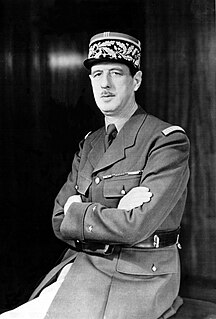
Gaullism is a French political stance based on the thought and action of World War II French Resistance leader General Charles de Gaulle, who would become the founding President of the Fifth French Republic.




